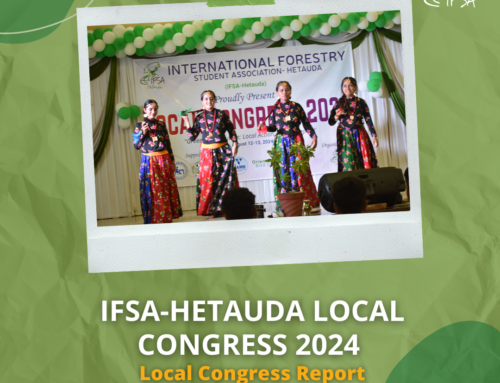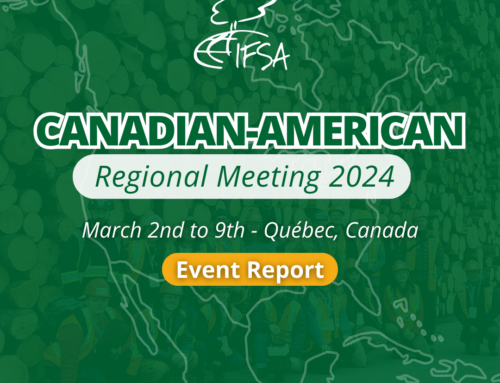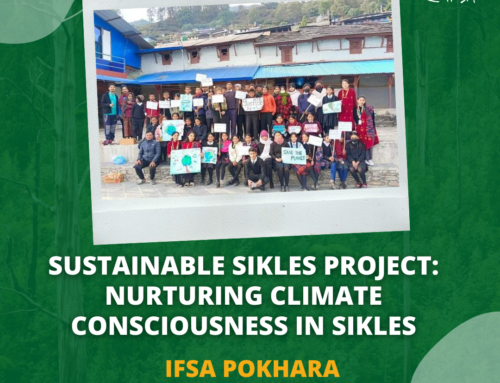An Online Discussion: Do the Young Generation Still Want to be a Farmer?
In Collaboration with Forest and Society Research Group
Forest and Society is an international journal managed by the Forestry Faculty of Universitas Hasanuddin led by Prof. Dr. forest Alif K. Sahide. S.Hut., M.Si. On 22 September 2022, the president of Forest and Society offered a collaborative partnership between Forest and Society Research Group (FSRG) and IFSA LC UNHAS. The partnership was about IFSA LC UNHAS being the organizing committee of an online discussion based on the previous research done by FSRG. The online discussion was held on 30 September 2022 to celebrate National Farmer Day by Mirella Christy, the IFSA LC UNHAS’ president, as a moderator and Dita Dwiyanti the IFSA LC UNHAS’ vice president, as the zoom operator.
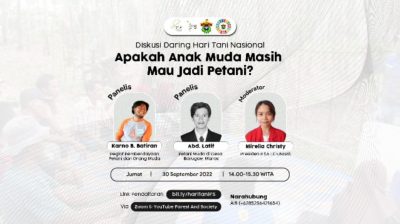
The Webinar Poster made by Tri Nadia Asrini (Public Relation of IFSA LC UNHAS)
Here, IFSA LC UNHAS also has an opportunity to introduce the organization.
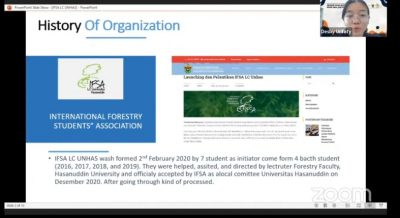
Desby Urifaty, The Public Relations of IFSA LC UNHAS was introducing IFSA
The rising of a crisis to the stigma and the doctrine
It was such a soft mobilization spoken by our teacher about refusing to be a farmer. It is because there has been such a common perception between poverty sketches and farmers. A small-scale interview done by FSRG with some undergraduate students and vocational students in South Sulawesi showed that there is less willingness of youth to be farmers. Most of them want to be the boss, not the worker.
Karno B Batiran, a farmer and youth activist, has stated some interesting facts about the farmer world. Nowadays, there is a crisis among farmers, while at the same time, the rice demand is increasing. Farmers dominantly are older people who usually didn’t complete 12 years of mandatory learning in formal education. Most of them also advise their children not to be a farmer but to be successful and reputable people such as a teacher.
Being educated is being logically free
Education gives humans access to thinking rationally and freely. Nevertheless, rationality tends to block humans from embracing their idea and turning it into reality. Abdul Latif, a young farmer from Barugae Village Maros and also one of the discussion speakers, commented that education gives him such a privilege of noticing many opportunities to build partnerships for creating sustainable agriculture, agriculture technology subsidies from the government, deciding the right plants for his land, and targeting his marketplace.
The core of the discussion was about giving such a redirectional perception of how education provides us with the privilege of thinking freely without being stuck in society’s stigma. Because at the end of the day, we are all charged to create something meaningful in society after we graduate. And being a farmer is one of the creative implementations of a free human.
Author: Wening Ila Idzatilangi
